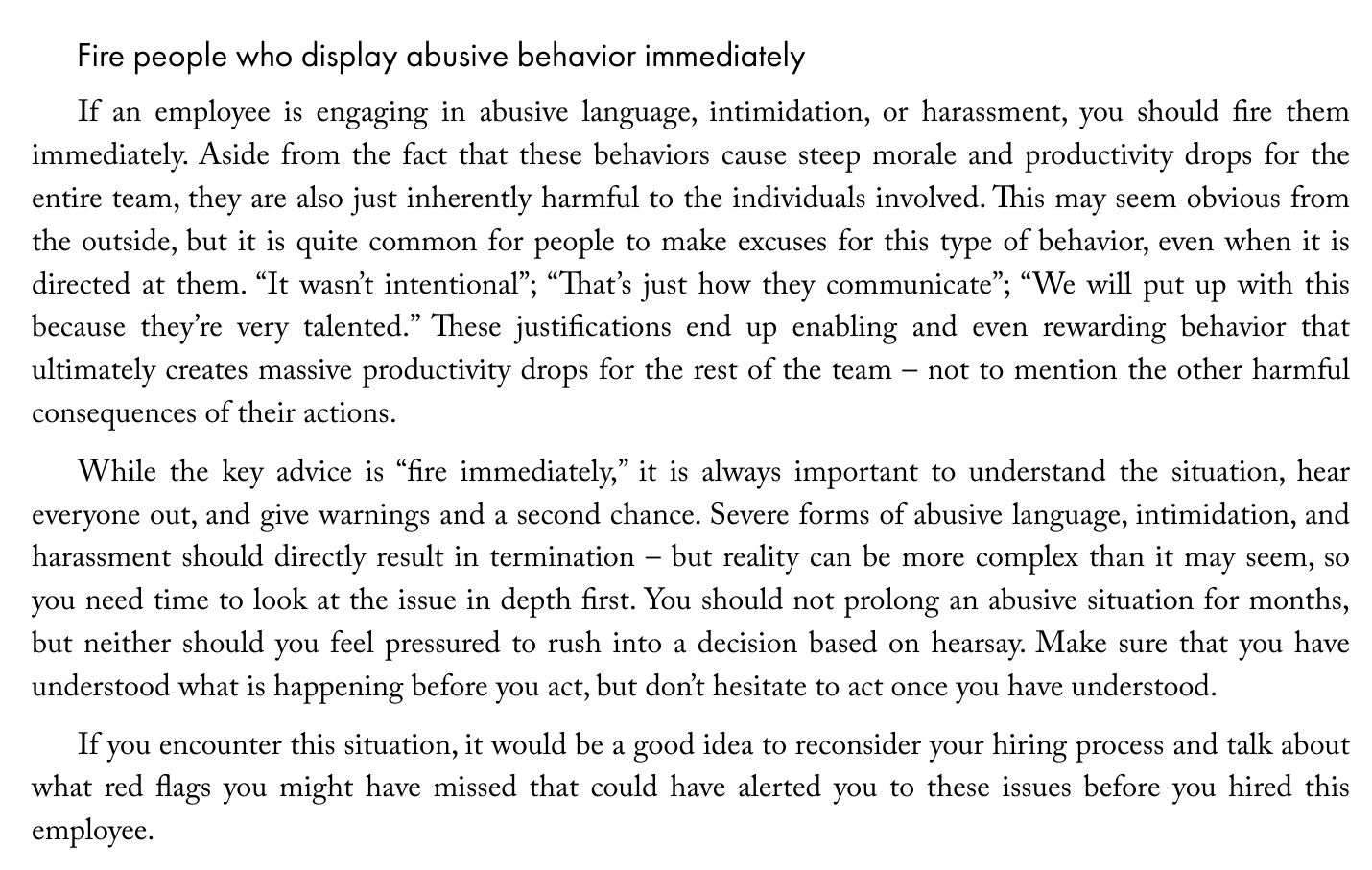I really loved this quick take from Lizka, especially this part:
At the same time, trying to actually do anything is really hard.[4] Appreciation for doers is often undersupplied. Being in leadership positions or engaging in public discussions is a valuable service, but opens you up to a lot of (often stressful) criticism, which acts as a disincentive for being public. Psychological safety is important in teams (and communities), so it’s unfortunate that critical environments lead more people to feel like they would be judged harshly for potential mistakes. Not all criticism is useful enough to be worth engaging with (or sharing). Responding to criticism can be time-consuming or otherwise costly and isn’t always worth it.[5] Sometimes people who are sharing “criticism” hate the project for reasons that aren’t what’s explicitly stated, or just want to vent or build themselves up.[6]
A lot of communities I've been part of-- science, EA, rationality-- sanctify criticism, but this can set up bad dynamics. The only truly safe position in EA/rationality is as a gadfly. Well, I have a criticism: It sucks that gadflies are protected and doers are punished in EA. It is lazy, it destroys morale, and it does not serve impact.
A lot of criticism just isn't that valuable, and we need to have the courage to realize this. We (especially LWers) treat criticism as a deontic good, and it blinds us to evaluating the expected value of criticism, from different sources and of different kinds, in terms of impact.
Heeding criticism is not free-- it can be immensely costly, and it can lead to far worse results than would have obtained otherwise. At the very least it takes time and energy to process and address criticism. The criticism, good or bad, has an emotional cost as well. Sometimes, it is very worth the cost of heeding criticism to get crucial information and do a better job. But sometimes criticism is poorly informed or wrong (especially if the act of criticizing is highly incentivized). Sometimes criticism is right but not worth the distraction from the primary work. Sometimes there is a social threat to public criticism, that the person will be rejected if they do not comply, which is costly to them personally and costly to the world that doesn't get more of their productive energy or original perspective.
Yet another problem with criticism, right or wrong, is that engaging with it feels like doing important work (and visible work if it's on a public forum) when actually that's highly questionably. Criticism of one's work or one's self is very emotionally salient and it can feel urgent to address it when it often is not. Similar to getting warm fuzzies from doing work that feels good, I get what I call the "hot spikies" when I feel like I am under attack and must defend myself. Just as it's not optimal to base your doing good decisions on obtaining warm fuzzies, it is not optimal to decide what to do and how to spend your time being spurred on by hot spikies.
It's risky to disregard criticism or fail to engage because that's a visibly unvirtuous behavior. I see this as the same as being unwilling to switch your giving from Make-a-Wish to AMF, because the world notices "taking away" from dying kids but the world isn't doing the QALY analysis. When a critic opines or when a doer listens to all the criticism they receive and changes their behavior in response, they get the small, guaranteed hit of being virtuous. Meanwhile, no one is keeping track of what they could have done without that criticism-- maybe they would have gone for a big grant or made a new partnership that was highly impactful if they hadn't been made to feel like a fool. Maybe they would have a moderate impact career that's considered unfashionable in the community but counterfactually superior to what they did instead. Maybe a vocal critic feels territorial and is trying to keep this new doer off their turf by discouraging them with criticism-- we need to consider the cost if that motivated critic is allowed to succeed. We need to show the same bravery to disregard unproductive discourse and selective demands for rigor as we do to look beyond less effective charities. The stakes are exactly the same.
I will very likely not engage with comments on this post, because it's not worth my time and energy. I wrote it because I wanted people to read it and take it to heart, not to call out a typo or reflexively argue about it, even though that is what is more easily rewarded. I'm going to practice the courage to rise above the hot spikies and focus on impact.





I largely agree with this post, and think this is a big problem in general. There's also a lot of adverse selection that can't be called out because it's too petty and/or would require revealing private information. In a reasonable fraction of cases where I know the details, the loudest critics of a person or project is someone who has a pretty substantial negative-COI that isn't being disclosed, like that the project fired them or defunded them or the person used to date them and broke up with them or something. As with positive COIs, there's a problem where being closely involved with something both gives you more information you could use to form a valid criticism (or make a good hire or grant) that others might miss and is correlated with factors that could bias your judgment.
But with hiring and grantmaking there are generally internal processes for flagging these, whereas when people are making random public criticisms, there generally isn't such a process